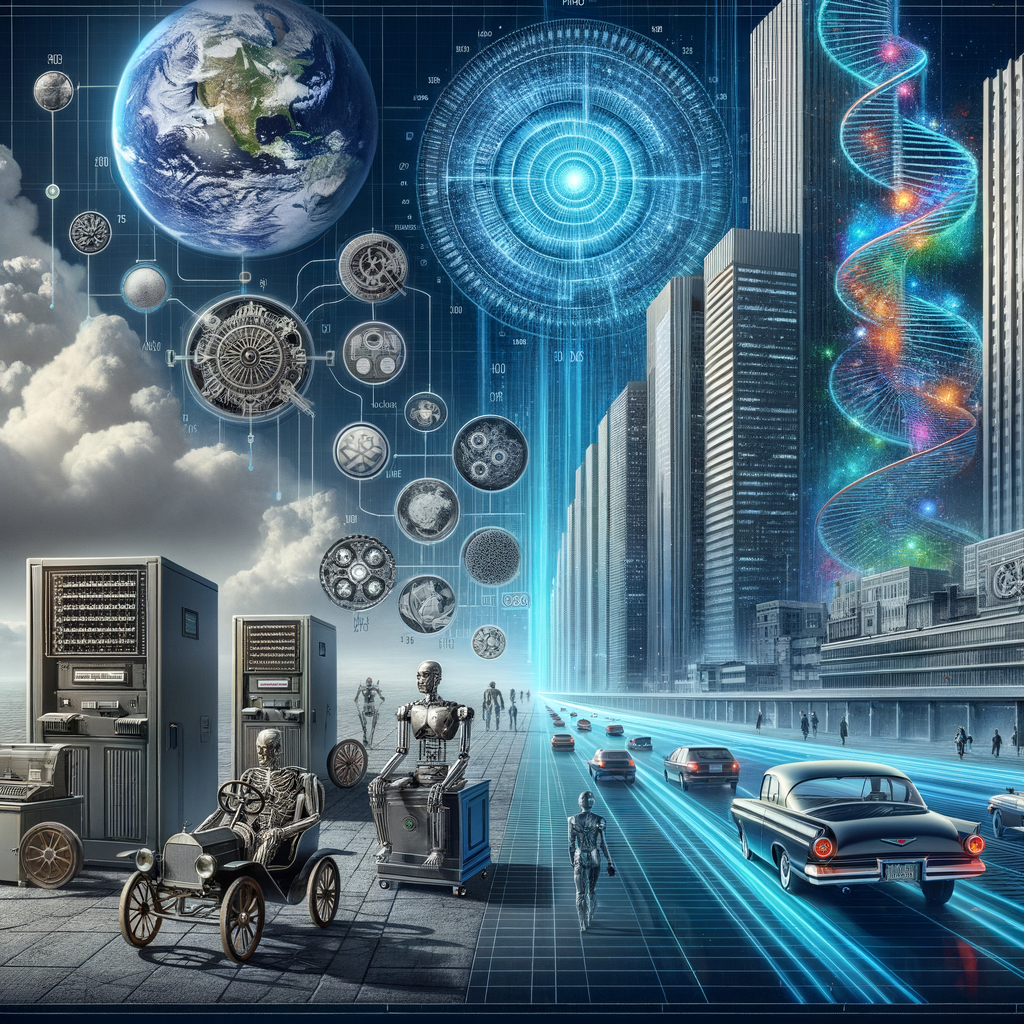Physical Address
304 North Cardinal St.
Dorchester Center, MA 02124
Physical Address
304 North Cardinal St.
Dorchester Center, MA 02124

Artificial intelligence (AI) has been a subject of fascination and speculation for scientists, authors, and the general public alike for many years. From its humble beginnings in the mid-20th century to its current state as a ubiquitous presence in our everyday lives, AI has undergone an incredible evolution. This article aims to explore this evolution and examine the profound impact AI has on modern society.
The concept of artificial intelligence can be traced back to antiquity, with myths and stories about artificial beings endowed with intelligence or consciousness by master craftsmen. However, it wasn’t until the 1950s that AI became a valid scientific endeavour. The term ‘artificial intelligence’ was coined by John McCarthy at the Dartmouth Conference in 1956 where it was decided that every aspect of learning or any other feature of intelligence can be so precisely described that a machine can be made to simulate it.
Over subsequent decades, AI research waxed and waned, influenced by factors such as funding availability and technological advancements. Despite these fluctuations, significant progress was made in areas like natural language processing, problem-solving algorithms, and knowledge representation.
In recent years, artificial intelligence has experienced unprecedented growth thanks to advances in computing power, data availability, and machine learning techniques. We now have AI systems capable of outperforming humans at complex games like chess and Go, recognising images with superior accuracy, driving cars autonomously, delivering personalised online shopping experiences based on individual preferences and behaviours.
This current state of AI is often referred to as narrow or weak AI because these systems are designed to perform specific tasks rather than possessing generalised human-like capabilities. Nevertheless, they represent significant achievements in the field and have wide-ranging applications.
Artificial intelligence has already begun to reshape society in profound ways. In the realm of healthcare, AI algorithms can now diagnose certain conditions with accuracy comparable to or even exceeding that of human doctors. In finance, AI is used for algorithmic trading, fraud detection, and customer service. In transportation, self-driving cars promise to revolutionise our roads and potentially reduce accidents caused by human error.
In addition to these specific applications, AI also has broader societal implications. For instance, as automation increases, there are concerns about job displacement across various industries. On a more positive note, AI could contribute to solving complex global issues like climate change through data analysis and prediction models.
Looking forward, it’s clear that artificial intelligence will continue to evolve and impact society in ways we can’t yet fully predict. The development of artificial general intelligence (AGI), systems capable of understanding or learning any intellectual task a human being can do, is one potential future direction for AI research.
While AGI remains largely speculative at this point, the prospect raises important ethical and philosophical questions about machine consciousness and the potential consequences of creating machines that match or exceed human intelligence.
Regardless of where the future takes us, it’s undeniable that artificial intelligence has become an integral part of our lives. As we continue to innovate and push the boundaries of what’s possible with AI technology, we must also strive to navigate its challenges responsibly and ethically.